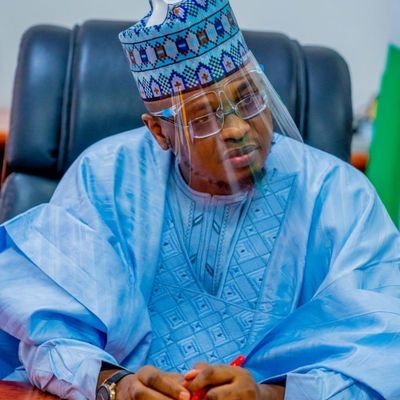Nigeria has improved on its global ranking in cyber security, the Minister of Communications and Digital Economy, Prof. Isa Pantami, has said.
Pantami made this known on the sideline of the Stakeholder’s Consultative Forum on Emerging Technologies organised by Nigeria Communication Commission (NCC) and Federal Ministry of Communications and Digital Economy in Lagos.
The minister said that Nigeria was not doing badly on the global cyber security index which ranked the country 75 out of 175 countries in 2018.
He said: “In 2020, out of 194 countries we were 54, the country increased by almost 19 and if you look at it the country was improving in global ranking.

According to him, the country has so many initiatives to ensure that our cyber space is protected.
The minister, in his opening remark, also said that regulations was needed due to increased data which would be about 79.4 per cent zetabyte by 2025, adding that regulators should, therefore, be proactive.
Pantami said that Nigeria”s ICT regulatory approach since 2019 hinged on the National Digital Economy policy and strategy for a digital Nigeria based strictly on developmental regulation.
He said that the regulatory approach had been flexible and had not in any way restricted the sector but rather supported its development.
Also, Prof. Garba Danbatta, Executive Vice-Chairman, NCC, said that the stakeholders’ contribution was critical in keeping abreast with the development in telecommunications industry.
Danbatta, who said that the telecommunications industry was dynamic, urged all stakeholders to come and constructively exchange ideas on the Spectrum and regulatory requirement of Internet of Things (IoT).
According to him, IoT is a system of interrelated computing devices, mechanical and digital machines, objects, animals or people that are provided with unique identifiers and the ability to transfer data over a network without requiring any human intervention (human-to-human or human-to-computer interaction).
“This is increasingly becoming important in the scheme of activities across most sectors of the economy which includes Education, Security, Military Reconnaissance Commerce, Governance, Inventory Management, Health etc.
“The applications of IoT are far-reaching. In the home, IoT can be used for home automation and control, lighting, temperature measurement, entertainment amongst others,” he said
He said that IoT unite assets, advanced analytics and workers by using connected industrial devices to monitor, collect, exchange, and analyze insights to drive faster and better decision making in an industrial setting.
“Industrial Internet of Things (IIoT) can be used to track inventory, improve the monitoring of product quality, and automate factories to make them run more efficiently,” he said.
Danbatta said that with the nation would witness advent of 5G technolgies another dimension in the IoT Ecosystem as 5G technology is going to enable Massive Machine Type Communication (mMTC).
He said that GSMA Intelligence forecasts that IoT connections would reach almost 25 billion globally by 2025.
Danbatta said that with this pace of growth, it has become imperative to prepare for the Regulation of this important technology.
On ‘to Regulate or not to Regulate’ issues, the panelists agreed that there should be standard and regulation, adding that while doing so, innovations should not be stifled.
They also called for collaborative regulation for future innovations.
There was also a public presentation of books authored by the Minister of Communications and Digital Economy. (NAN)

